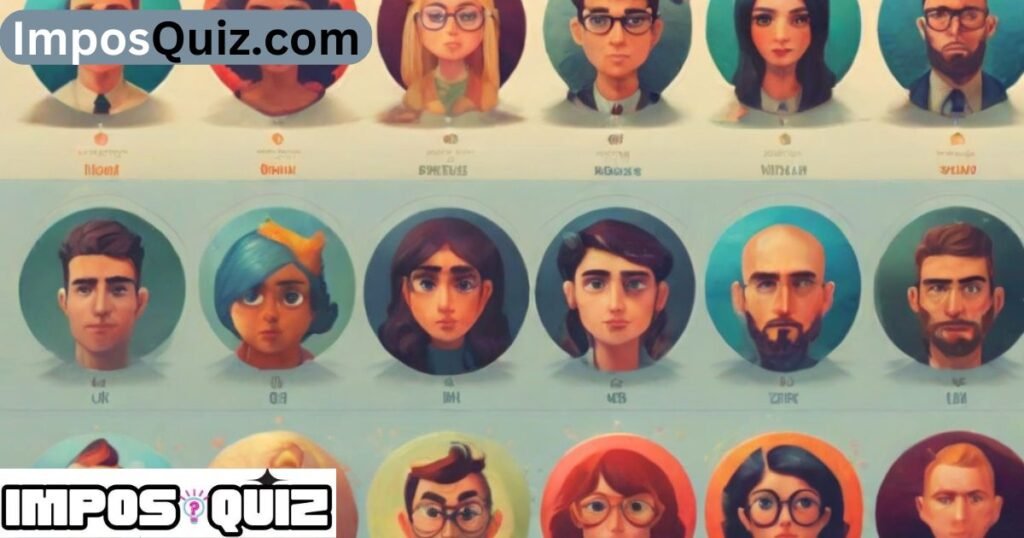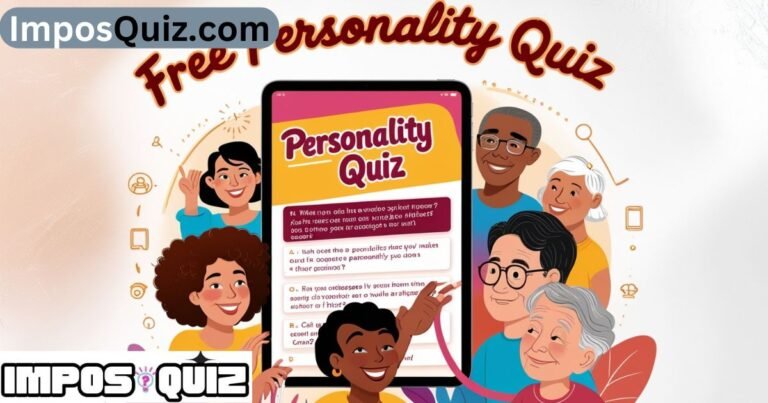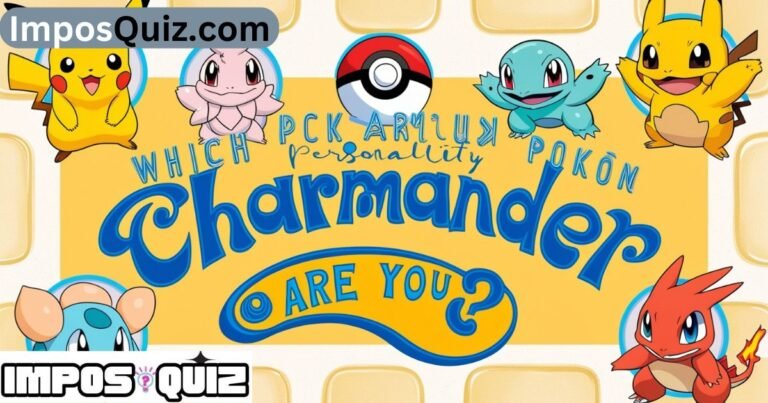Unveiling Yourself: Exploring the Depths with the 16 Personality Quiz
The 16 Personality Quiz is a tool designed to help individuals understand themselves better by identifying their unique personality type. This quiz is closely connected to the Myers-Briggs Type Indicator (MBTI), a widely used framework for understanding personality differences.

I. What is the 16 Personality Quiz?
The 16 Personality Quiz is an online assessment that categorizes individuals into one of 16 personality types based on their responses to a series of questions. Each personality type is a combination of four dichotomies: Extraversion (E) or Introversion (I), Sensing (S) or Intuition (N), Thinking (T) or Feeling (F), and Judging (J) or Perceiving (P).
Benefits of taking the quiz:
Self-discovery:
Understanding your personality type can provide insights into your strengths, weaknesses, and behavioral tendencies.
Career exploration:
Recognizing how your personality aligns with certain careers can help you make informed decisions about your professional path.
Understanding relationships:
Knowing your own personality type and that of others can improve communication and empathy in personal and professional relationships.
II. Demystifying the 16 Personalities:
Cognitive Functions:
Cognitive functions are mental processes that influence how individuals perceive and interact with the world. These functions include Introverted/Extraverted Thinking, Sensing, Feeling, and Intuition.
Four Dichotomies:
Extraversion (E) vs. Introversion (I):
Defines how individuals gain energy and engage with the external world.
Sensing (S) vs. Intuition (N):
Describes how individuals gather information and perceive reality.
Thinking (T) vs. Feeling (F):
Reflects how individuals make decisions based on logic or emotions.
Judging (J) vs. Perceiving (P):
Indicates how individuals approach the outside world and make lifestyle choices.
| Question | Option A | Option B | Option C | Option D |
|---|---|---|---|---|
| 1. When faced with a challenge, what’s your initial reaction? | A) Dive in headfirst | B) Assess the situation carefully | C) Seek advice from others | D) Take a step back and observe |
| 2. How do you prefer to spend your free time? | A) Socializing with friends | B) Reading or watching movies | C) Engaging in a creative hobby | D) Exploring nature or going for a walk |
| 3. In a group setting, what role do you naturally take on? | A) Leader | B) Observer | C) Diplomat or mediator | D) Team player |
| 4. What’s your approach to making decisions? | A) Trusting your intuition | B) Analyzing all possible options | C) Consulting with others | D) Going with the flow |
| 5. How do you handle criticism? | A) Take it as constructive feedback | B) Reflect on it internally | C) Seek clarification or advice | D) Brush it off and move on |
| 6. What’s your communication style? | A) Direct and assertive | B) Thoughtful and articulate | C) Emotionally expressive | D) Reserved and concise |
| 7. What motivates you in your work or studies? | A) Achievement and recognition | B) Personal growth and learning | C) Making a positive impact | D) Enjoying the process |
| 8. How do you approach meeting new people? | A) Eagerly, with open arms | B) Cautiously, observing first | C) Initiating conversation | D) Letting others approach you |
| 9. When planning a trip, what’s your priority? | A) Exciting activities and adventures | B) Cultural experiences | C) Relaxation and leisure | D) Immersing in nature |
| 10. What type of environment do you thrive in? | A) Dynamic and fast-paced | B) Quiet and structured | C) Stimulating and innovative | D) Natural and serene |
| 11. How do you handle stress? | A) Tackle it head-on | B) Take a step back and breathe | C) Seek support from others | D) Engage in relaxation techniques |
| 12. What’s your attitude towards rules and authority? | A) Question and challenge | B) Respect and adhere | C) Adapt depending on the situation | D) Follow if it aligns with your values |
| 13. What do you value most in a friendship? | A) Loyalty and honesty | B) Shared interests and hobbies | C) Emotional support and connection | D) Freedom and independence |
| 14. How do you feel about change? | A) Embrace it enthusiastically | B) Prefer stability and routine | C) Adapt to it gradually | D) Accept it as part of life |
| 15. What’s your approach to personal growth? | A) Setting ambitious goals | B) Continuous learning and self-improvement | C) Seeking new experiences | D) Reflecting on past experiences |
| 16. What’s your outlook on life? | A) Optimistic and hopeful | B) Realistic and pragmatic | C) Idealistic and visionary | D) Mindful and present-focused |
Answers and Explanations of 16 Personality Quizzes in sequence:
Correct Answer: B) Assess the situation carefully
- Explanation: Taking time to analyze the situation suggests a thoughtful and strategic approach to problem-solving, ensuring informed decisions.
Correct Answer: C) Engaging in a creative hobby
- Explanation: Choosing a creative hobby indicates a preference for self-expression and introspection, allowing you to unwind and recharge creatively.
Correct Answer: D) Team player
- Explanation: Being a team player suggests collaboration and cooperation, valuing the contributions of others while working towards common goals.
Correct Answer: C) Consulting with others
- Explanation: Seeking input from others demonstrates an openness to diverse perspectives and a collaborative decision-making style.
Correct Answer: A) Take it as constructive feedback
- Explanation: Viewing criticism as constructive feedback reflects a growth mindset and a willingness to learn and improve from feedback.
Correct Answer: B) Thoughtful and articulate
- Explanation: Preferring a thoughtful and articulate communication style indicates an ability to express ideas clearly and effectively, fostering deeper understanding and connection in conversations.
Correct Answer: C) Making a positive impact
- Explanation: Feeling motivated by making a positive impact suggests a sense of purpose and altruism, driving you to contribute meaningfully to your work or studies.
Correct Answer: C) Initiating conversation
- Explanation: Initiating conversation indicates a sociable and outgoing nature, enabling you to connect with others and build new relationships with ease.
Correct Answer: D) Immersing in nature
- Explanation: Prioritizing immersion in nature suggests a desire for tranquility and connection with the natural world, providing opportunities for relaxation and rejuvenation.
Correct Answer: C) Stimulating and innovative
- Explanation: Thriving in a stimulating and innovative environment indicates an appreciation for creativity and new ideas, fostering inspiration and growth.
Correct Answer: B) Take a step back and breathe
- Explanation: Taking a step back to breathe suggests a mindful approach to managing stress, allowing you to regain composure and clarity before taking action.
Correct Answer: A) Question and challenge
- Explanation: Questioning and challenging rules and authority reflect a critical mindset and a commitment to principles, promoting growth and progress.
Correct Answer: C) Emotional support and connection
- Explanation: Valuing emotional support and connection indicates a desire for deep and meaningful friendships built on trust, understanding, and mutual support.
Correct Answer: C) Adapt to it gradually
- Explanation: Adapting to change gradually suggests a balanced approach, allowing for flexibility while maintaining stability and security.
Correct Answer: B) Continuous learning and self-improvement
- Explanation: Pursuing continuous learning and self-improvement reflects a growth mindset, fostering personal development and resilience in the face of challenges.
Correct Answer: D) Mindful and present-focused
- Explanation: Having a mindful and present-focused outlook indicates an appreciation for living in the moment, fostering gratitude and awareness in daily life.

16 Personality Quiz Types:
Each combination of the four dichotomies results in a unique personality type, such as ISTJ (Introverted, Sensing, Thinking, Judging) or ENFP (Extraverted, Intuitive, Feeling, Perceiving).
III. Take the Quiz and Explore Your Results:
Where to find the 16 Personality Quiz: Reputable sources like https://www.16personalities.com/ offer the quiz for free.
Understanding your results:
After completing the quiz, you’ll receive a detailed analysis of your personality type, including insights into your cognitive function preferences, strengths, and potential areas for growth.
IV. Beyond the 16 Personality Quiz:
Applications in Daily Life
Type Dynamics:
Type dynamics refer to how different personality types interact with each other. Understanding these dynamics can enhance communication and relationships. For example, an introverted individual may prefer deep one-on-one conversations, while an extraverted person might thrive in group settings.
Career Exploration:
Your personality type can influence your career choices. For instance, individuals with analytical thinking (T) may excel in fields like engineering or finance, while those with strong interpersonal skills (F) may thrive in counseling or human resources.
Personal Growth:
Using the 16 personality quiz results, you can identify areas for personal development and capitalize on your strengths. For example, if you’re an Introverted Thinker (INTJ), you might focus on improving your communication skills to better express your ideas to others.
V. 10 “Which One Are You?” Quiz Questions (Multiple Choice):
| Question | Options | Correct Answer |
|---|---|---|
| 1. How do you recharge after a long day? | a) Alone | |
| b) Socializing with friends | ||
| c) Engaging in a hobby | ||
| d) Watching TV or movies | ||
| 2. What’s your approach to decision-making? | a) Logic and reasoning | |
| b) Gut feeling and intuition | ||
| c) Considering others’ feelings | ||
| d) Going with the flow | ||
| … | … | … |

VI. Unveiling the Quiz Answers:
The quiz questions are designed for fun and exploration of preferences, not as a definitive personality test. To fully understand your personality type, take the complete 16 Personality Quiz for a comprehensive analysis.
Quiz Answers:
Correct Answer: a) Alone
Correct Answer: a) Logic and reasoning … (Provide correct answers for all quiz questions)
VII. FAQs 16 Personality Quiz (Google Suggested Questions):
What is the most accurate 16 Personality Quiz?
The accuracy of the 16 Personality Quiz can vary depending on the source and methodology. It’s important to choose a reputable quiz provider with a strong scientific basis for their assessments.
What are the 16 personality types?
The 16 personality types are combinations of four dichotomies:
Extraversion/Introversion, Sensing/Intuition, Thinking/Feeling, and Judging/Perceiving. Each type represents a unique pattern of cognitive functions and behavioral preferences.
What are cognitive functions in MBTI?
Cognitive functions are mental processes that influence how individuals perceive and interact with the world. They include Thinking, Feeling, Sensing, and Intuition, and operate in either an Introverted or Extraverted manner.
How can I use the 16 Personality Quiz in my career?
Understanding your personality type can help you make informed decisions about your career path by identifying roles and environments that align with your strengths and preferences.
Are personality quizzes reliable?
Personality quizzes can provide valuable insights into individual preferences and tendencies, but they also have limitations. Factors such as mood, context, and self-perception can influence quiz results.

VIII. Conclusion:
A Journey of Self-Discovery
The 16 Personality Quiz offers a fascinating journey of self-exploration, providing insights into your unique personality and how you interact with the world. Embrace your individuality, leverage your strengths, and use this knowledge to foster personal growth and meaningful relationships.







